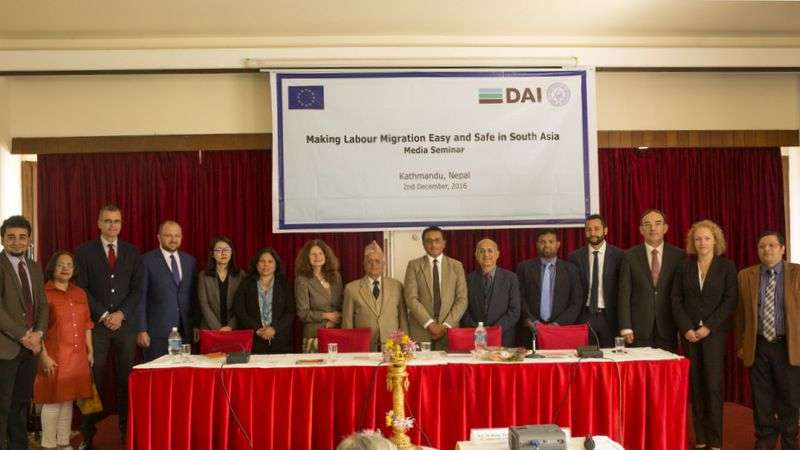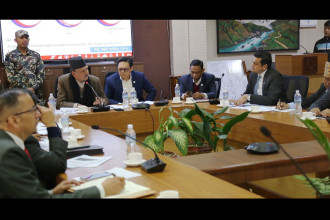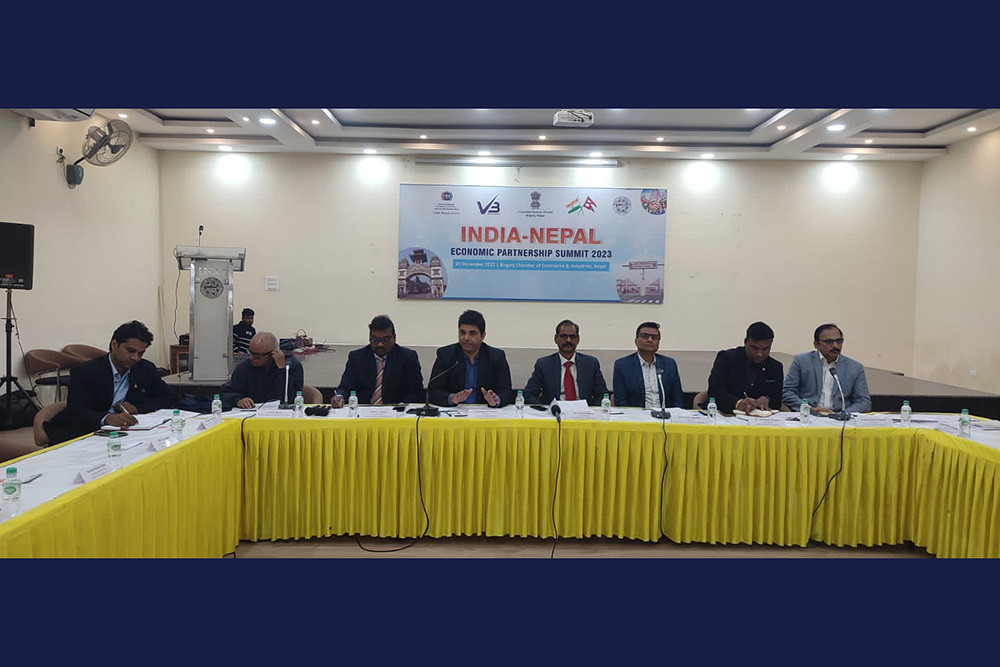
In light of the many challenges faced in the South Asian region in regards to migrant workers, the European Union Delegation to Nepal hosted a regional seminar on "Making Labour Migration Easy and Safe in South Asia in Kathmandu, on December 2, with the support of DAI Europe and Centre for South Asian Studies (CSAS). The event brought together participants from government institutions, institutes, think-tanks, civil society, media, migration associations, private sector, international community, SAARC Secretariat and international participants including EU Delegations to India, Pakistan and Bangladesh. During the inaugural session, Dr. Swarnim Wagle, Member of National Planning Commission was present. The European Union not only funds a number of migration related programmes aimed at facilitating and enhancing the management of labour migration between South and Southeast Asia and selected countries in the EU, and supports mechanisms and awareness leading to safe migration, but also ensures continuing policy dialogue in line with the Global Approach to Migration and Mobility (GAMM). The seminar brought an experience-sharing event and showcased the EU policies on Migration and the outlines of the EU funded projects and programmes in the South Asian region. Rensje Teerink, EU Ambassador to Nepal and to the SAARC said "Migrants‘ necessities go further than the cooperation of all players that are gathering here today; Migration needs to be addressed in a multi-sector approach and focus on the human, social and labour rights of migrants, their psychological and social well-being, and the development efforts migrants workers can contribute to. In the last decade, the EU has made major steps towards building a truly comprehensive migration policy, based on common political principles and solidarity. The GAMM is, since 2005, the overarching framework of the EU external migration and asylum policy. The framework defines how the EU conducts its policy dialogues and cooperation with non-EU countries, based on clearly defined priorities and embedded in the EU‘s overall external action, including development cooperation. Speakers conversed on how migration flow facilitates extensive benefits to migrants, such as remittances and cross-sharing of skills, while challenges remain as migrants are exposed to many risks such as abuse, poor working conditions or difficulty to access their rights and protection. As per the discussions, information regarding qualifications, skills and wages need to ensure informed decisions by public and private institutions as well as by migrant workers, which will result in better training investment in both source and receiver countries. Member States in South Asia need to set a fair system of mutual recognition of educational attainment and acquired skills based on comparable standards for low and semi-skilled occupations. At policy level, inter-state cooperation is also needed to regulate the labour migrants‘ flow, to develop coherent policies and activate mechanisms to facilitate better organization of legal migration, to ensure migrants‘ safety and rights, and to maximize the development impacts of migration and mobility.






